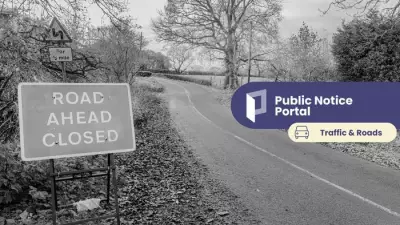
In a significant expansion of government surveillance powers, the Department for Work and Pensions (DWP) is set to gain unprecedented access to millions of Britons' bank accounts as part of a crackdown on benefit fraud.
What the New Powers Mean for Claimants
The proposed legislation, currently making its way through Parliament, would grant the DWP authority to conduct regular checks on bank and building society accounts belonging to benefit recipients. This move represents one of the most substantial increases in state financial monitoring powers in recent years.
The government claims these measures are essential to identify and prevent fraudulent claims, particularly targeting individuals who might be:
- Living abroad while claiming UK benefits
- Exceeding capital limits while receiving means-tested benefits
- Failing to declare additional income or savings
The Scale of the Operation
This new financial surveillance system could affect approximately 8 million households across the United Kingdom who currently receive benefits such as Universal Credit, Pension Credit, and disability allowances. The DWP estimates this could lead to saving around £500 million for taxpayers over the next five years.
How the Checks Will Work
Under the proposed system, banks and financial institutions will be required to run automated data-matching exercises to identify accounts that show patterns potentially indicating fraud. The DWP will then be able to request more detailed information about specific accounts flagged by these systems.
Key aspects of the new monitoring system include:
- Regular automated checks rather than one-off investigations
- Focus on identifying undisclosed capital and overseas residency
- Third-party data matching with other government departments
- Potential for freezing accounts in suspected fraud cases
Privacy Concerns and Safeguards
Civil liberties groups and privacy advocates have expressed serious concerns about the scope of these new powers. Critics argue that mass financial surveillance of benefit claimants creates a dangerous precedent and could disproportionately impact vulnerable individuals.
The government has emphasised that safeguards will be in place, including:
- Regular audits of how the powers are used
- Requirements for reasonable suspicion before detailed investigations
- Appeals processes for individuals who believe they've been wrongly targeted
Impact During the Cost of Living Crisis
This expansion of monitoring powers comes at a particularly sensitive time, with many households struggling with rising living costs. Some advocacy groups have questioned the timing, suggesting that the government should focus on supporting legitimate claimants rather than increasing surveillance.
The legislation is expected to receive Royal Assent later this year, with the first checks potentially beginning in early 2025.
Benefit recipients are advised to ensure their financial information is accurately reported to the DWP and to seek advice from organisations like Citizens Advice if they have concerns about how these changes might affect them.





